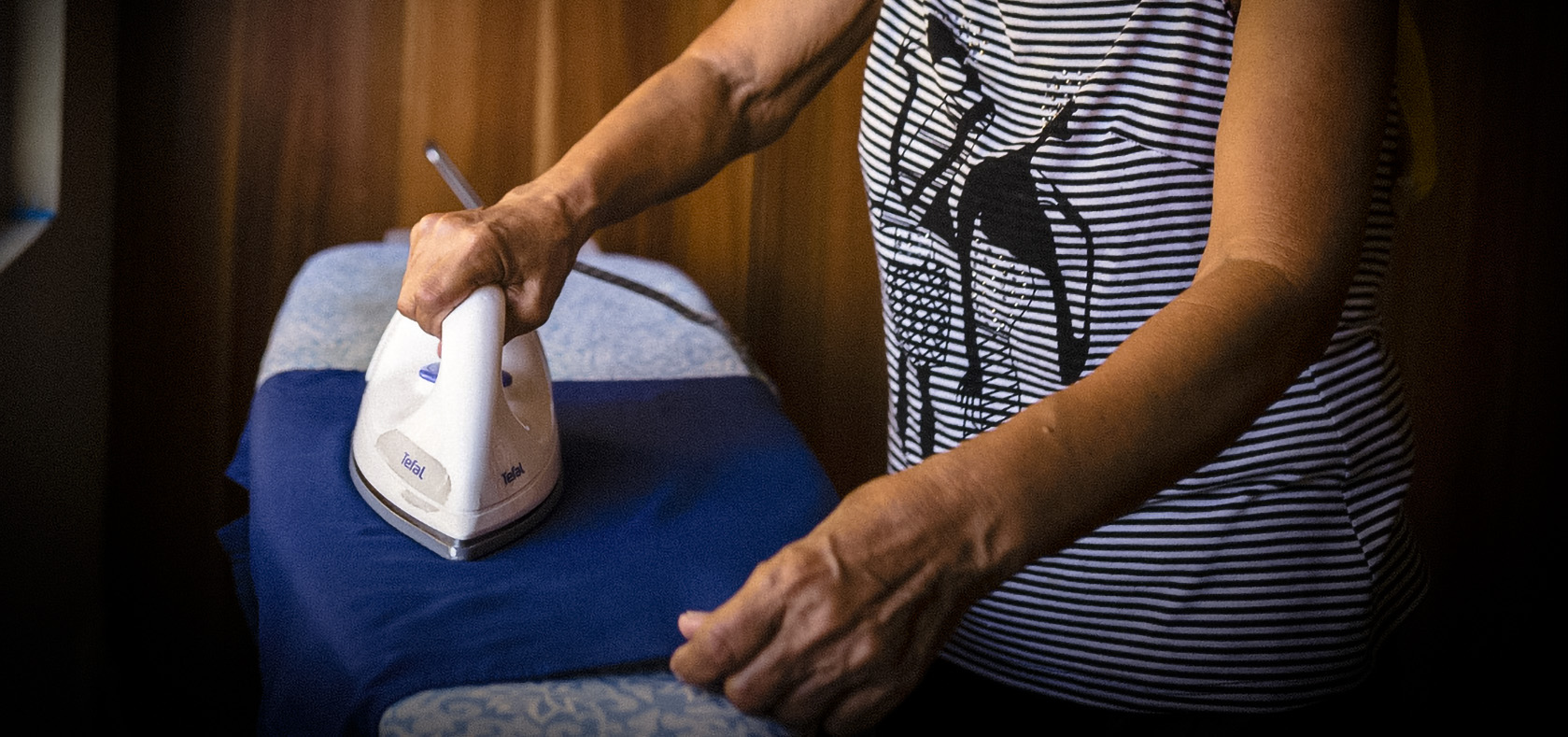‘I feel safe here’ - defending the rights of women migrant workers in Singapore
Date:
Author: Pichit Phromkade
Originally posted on SpotlightInitiative website, 26 September 2021.

Singapore — Asia and the Pacific host most of the world's domestic workers, accounting for38.3 million domestic workers over the age of 15. The region also accounts for the largest share of women domesticworkers globally - morethan 52 per cent - according to the International Labour Organization (ILO).
Women migrant domestic workers play an important role in Singapore, one of the 10 countries in the Association ofSoutheast Asian Nations (ASEAN) where the Safe and Fair Programme is being implemented under the SpotlightInitiative. However, despite providingvaluable domestic and care-giving services, many work in conditions that leave them vulnerable to exploitation,abuse and violence.
Through the support of Safe and Fair, women migrant workers and civil society organizations in Singapore are workingtogether to help domestic workers assert their rights and speak out against ill treatment.
Below, three women share their stories.
"My family did not know if I was still alive as my employer took my mobile phone... I could not seekhelp from anybody.”
—Aye Aye, domestic worker
Aye Aye, Domestic Worker
A single mother with a 5-year-old son to support, Aye Aye moved from Myanmar to Singapore in 2019 to pursueemployment. "I thought working as a domestic worker would be easy, but it is quite challenging and sometimesmiserable," she says.
While working in Singapore, she took care of all her employer’s cleaning and cooking, as well as ensuring thattheir elderly grandmother took her medicine - a job that meant working through the night as well as the day.
"I faced verbal abuse and got little sleep,” she says. “The grandmother often scolded me. The worst thingfor me was the unpaid salary and the restriction of communication. The last time I received my salary was in themiddle of 2020, andmy family did not know if I was still alive as my employer took my mobile phone when I started working for them. Icould only communicate with my family once. Without the phone, I could not seek help from anybody.”
She managed to get hold of a new phone one day while grocery shopping and soon learned about the HumanitarianOrganization for Migration Economics (HOME) from another Myanmar domestic worker she met. HOME is a SpotlightInitiative partner organizationbased in Singapore that is dedicated to empowering migrant workers who experience abuse and exploitation.
“HOME has helped me claim back my salary and submitted my case to the authorities,” says Aye Aye.“I also went for counselling where I was able to share my feelings about how my employer treated me. Ifeel safe here and I have madefriends with other Myanmar migrant domestic workers. We are here to support each other. I am still waiting for theresult of the investigation, but I hope I will get justice. I really hope we can prevent this kind of misconduct andI would like toencourage my fellow domestic workers to seek help if you believe that you have been exploited.”
“I would like to tell other domestic workers to seek help if you need to and to never give up."
—Liyana*, domestic worker
Liyana*, Domestic Worker
Liyana, 32, moved from Indonesia to Singapore looking for work, but found that the reality was nothing likeshe’d hoped.
"I did sign a contract before I started working, but the contract did not say what I had to do on a daily basis,"explains Liyana. "I had to share a room with my employer’s grandmother, which made it hard to sleep. Thegrandmother had irregularsleeping times and needed almost constant care because she was not mobile. I worked long hours, waking up early toprepare breakfast for the family. I was exhausted.”
When Liyana raised these issues with her employer and recruitment agency, her concerns were dismissed.
"My employer and the agency said that the situation was not too bad and I should be grateful to have a job,”she says. “I was not allowed to have a rest day when I was paying off my loan deduction, which was six and ahalf months long."
After five long months, she decided to approach HOME for help. The organization helped her present her case to theMinistry of Manpower. "I am now allowed to be repatriated home,” she says. “I would like to tell otherdomestic workers to seekhelp if you need to, and to never give up."
*Name has been changed to protect the survivor's identity.
“Domestic workers have the right to equal protection, to work free from violence and abuse."
—Jaya, HOME caseworker
Jaya Anil Kumar, HOME Caseworker
Jaya Anil Kumar is a Case Manager for HOME, Singapore, where she assists migrant domestic workers, including thoseexperiencing abuse and exploitation.
“In spite of their positive contribution to Singaporean society and households, many migrant domestic workersface challenges in their daily lives, especially with regards to violence, abuse and labour rightsviolations,” explains Jaya. “Someof them face restrictions on their mobile phone usage, which can put them at further risk of violence as they cannotmake a phone call to seek help.”
Jaya and her team provide both assistance and shelter to domestic workers who have experienced violence. She thenrefers their cases to specialized service providers, such as police, shelters, and health and social services. Shealso organizes informationsessions on human rights, labour law and life skills to ensure that migrant workers know how to recognize and reportviolence.
“Domestic workers have the right to equal protection, to work free from violence and abuse,” she says.
The Safe and Fair Programme is implemented by ILO and UN Women with the support of the Spotlight Initiative. From2018 to 2020, the programme reached 75,445 women migrants with support services and information - includingpsychosocial, health, social and legal services - and increased their knowledge of support initiatives, safemigration and job skills training.